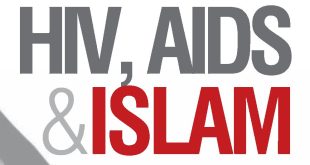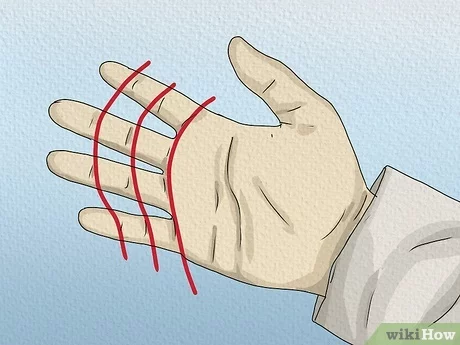 If you are doing Ramadan right, your intake of food will be reduced, but that doesn’t mean you need to be malnourished.
If you are doing Ramadan right, your intake of food will be reduced, but that doesn’t mean you need to be malnourished.
I’ll be sharing ten nutrient-dense foods and herbs that will help deliver the nutrients and support your body needs.
These super foods will help reduce the discomforts of Ramadan fasting and help you adapt, keeping your immune and digestive systems running smoothly.
Ramadan is a time when your body is cleansing because it now has the time and extra enzymes to cleanse and regenerate.
When you’re not fasting, digestion uses most of our body’s resources, including enzymes. By freeing the body of the labor-intensive digestive process, we allow the body to utilize those enzymes.
While fasting, detoxification pathways and the liver are hard at work clearing all the metabolic waste that has built up during the year. But unlike other processes in the body, if the detoxification system doesn’t have the nutrients it needs, it just won’t function (1,2).
This is why it is important to keep the nutrients it needs on your plate during Ramadan.
Here are some ideas on how to add important foods and herbs to your regular cooking routine with a few recipe ideas for you to try.
 Hibiscus
Hibiscus
Easy to come by, hibiscus is used to make a popular drink throughout the Middle East. It is easy to find as pre-packaged tea bags or a loose, dried flower. Egyptians traditionally serve it as post iftar drink.
Rich in vitamin C, it is an immune system super food.
Vitamin C is easily destroyed by light and heat, so when we cook foods rich in vitamin C, we are destroying the very nutrient we need to be healthy.
This is one reason why it’s healthy to eat a variety of foods prepared in a variety of ways.
Cooking has a huge role to play in our eating habits and is necessary in many instances to make a food more nutritious and, in some cases, safe to eat. Spinach when eaten raw, for example, is a natural thyroid inhibitor. Cooking removes this harmful inhibitory status.
Vitamin C is also a water-soluble nutrient, which means it doesn’t accumulate in our bodies. We don’t keep a stockpile of it for use during times of shortage like we do with the fat-soluble vitamin D.
What this means is that your body requires a regular intake of vitamin C.
Sipping on a cup of hibiscus cooler after a long day of fasting is just the thing to ensure you get the vitamin C your body needs.
Hibiscus Cooler:
16 oz water
1 hibiscus tea bag or 0.5 ounce of loose dried hibiscus flowers (3 or 4).
4-8 ounces of white grape juice.
Method:
Add sugar-free grape juice for a better taste.
Place the hibiscus flowers in a container and pour cold or tepid water over it. You can leave it overnight or for a few hours.
The longer the tea bad remains in the water, the bitterer the drink will be. Add in grape juice to taste and store in the refrigerator for up to three days.
Yogurt
 We all know the health benefits of yogurt, but not all yogurts are created equal. Make sure to purchase yogurts with active yogurt cultures to receive the health benefits for your digestive tract and immune system (2).
We all know the health benefits of yogurt, but not all yogurts are created equal. Make sure to purchase yogurts with active yogurt cultures to receive the health benefits for your digestive tract and immune system (2).
Extremely versatile, yogurt can be used as a condiment, in salads, main dishes and as a dessert. Yogurt layered with fruit makes an easy velvety desert that is good enough to serve to guests and easy enough for a family dinner.
Real pickles
Just like yogurt, this fermented food is a super food but only if it’s prepared the traditional way using salt and water, not vinegar (3,4).
To make sure you are getting the real thing, look for these pickles in the refrigerator section of your supermarket.
What makes pickled foods, not just cucumbers, so nutritious is that during the fermentation process the little microbes predigest and absorb the vitamins and minerals (3,4).
Interestingly, fermented food will often produce new nutrients that didn’t originally exist in the food before the fermentation process (3,4).
A good example of this is cabbage and its fermented version in German sauerkraut. Prior to fermentation (no alcohol is produced), cabbage isn’t rich in the B vitamins. But after, sauerkraut is abundant in them (3,4).
Check back soon for parts two and three to learn more about the best foods to add to your diet during Ramadan.
Source : http://www.onislam.net
Post Disclaimer | Support Us
Support Us
The sailanmuslim.com web site entirely supported by individual donors and well wishers. If you regularly visit this site and wish to show your appreciation, or if you wish to see further development of sailanmuslim.com, please donate us
IMPORTANT : All content hosted on sailanmuslim.com is solely for non-commercial purposes and with the permission of original copyright holders. Any other use of the hosted content, such as for financial gain, requires express approval from the copyright owners.
 Sri lanka Muslims Web Portal Sri Lanka Muslims News Center
Sri lanka Muslims Web Portal Sri Lanka Muslims News Center
 Donate
Donate


